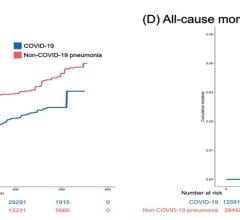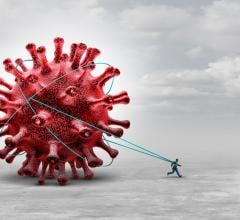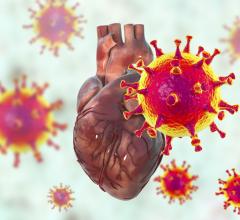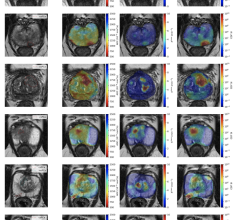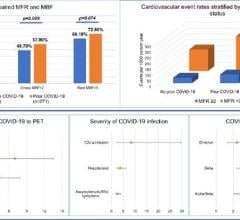
Katherine Fornell, age 5, from suburban Chicago, receives her first dose of the COVID-19 vaccine during the first week it became available in the U.S. The FDA authorized the emergency use of the Pfizer-BioNTech COVID-19 vaccine Oct. 29 for the prevention of COVID-19 in children 5 to 11 years of age. This was based on a safety review of more than 3,000 patients receiving the vaccine ages 5-11.
November 5, 2021 — The U.S. Food and Drug Administration (FDA) authorized the emergency use of the Pfizer-BioNTech COVID-19 vaccine Oct. 29 for the prevention of COVID-19 in children 5 to 11 years of age.
The emergency use authorization (EUA) was based on the FDA’s evaluation of the data that included input from independent advisory committee experts who overwhelmingly voted in favor of making the vaccine available to children in this age group.
The available safety data to support the EUA include more than 4,600 participants (3,100 vaccine, 1,538 placebo) ages 5 through 11 years enrolled in the ongoing study. In this trial, a total of 1,444 vaccine recipients were followed for safety for at least two months after the second dose.
Key points for parents and caregivers in the emergency use authorization announcement included the following subsections:
Effectiveness in Young Children Comparable to Ages 16-25
The immune responses of children 5 through 11 years of age were comparable to those of individuals 16 through 25 years of age. In that study, the vaccine was 90.7% effective in preventing COVID-19 in children 5 through 11.
The FDA said effectiveness data to support the EUA in children down to 5 years of age is based on an ongoing randomized, placebo-controlled study that has enrolled approximately 4,700 children 5 through 11 years of age. The study is being conducted in the U.S., Finland, Poland and Spain. Children in the vaccine group received two doses of the Pfizer-BioNTech COVID-19 Vaccine containing 10 micrograms of messenger RNA per dose. The FDA analyzed data that compared the immune response of 264 participants from this study to 253 participants 16 through 25 years of age who had two higher doses of the vaccine in a previous study which determined the vaccine to be effective in preventing COVID-19. The immune responses of the younger age participants were comparable to the older participants.
The FDA also conducted a preliminary analysis of cases of COVID-19 occurring seven days after the second dose. In this analysis, among participants without evidence of prior infection with SARS-CoV-2, 3 cases of COVID-19 occurred among 1,305 vaccine recipients and 16 cases of COVID-19 occurred among 663 placebo recipients; the vaccine was 90.7% effective in preventing COVID-19.
Safety of the COVID Vaccine in Children Ages 5-11
The vaccine’s safety was studied in approximately 3,100 children age 5-11 who received the vaccine. There were no serious side effects detected in the ongoing study.
“As a mother and a physician, I know that parents, caregivers, school staff, and children have been waiting for today’s authorization. Vaccinating younger children against COVID-19 will bring us closer to returning to a sense of normalcy,” said Acting FDA Commissioner Janet Woodcock, M.D. “Our comprehensive and rigorous evaluation of the data pertaining to the vaccine’s safety and effectiveness should help assure parents and guardians that this vaccine meets our high standards.”
The FDA has determined this Pfizer vaccine has met the criteria for emergency use authorization. Based on the totality of scientific evidence available, the known and potential benefits of the Pfizer-BioNTech COVID-19 vaccine in individuals down to 5 years of age outweigh the known and potential risks.
“The FDA is committed to making decisions that are guided by science that the public and healthcare community can trust. We are confident in the safety, effectiveness and manufacturing data behind this authorization. As part of our commitment to transparency around our decision-making, which included our public advisory committee meeting earlier this week, we have posted documents today supporting our decision and additional information detailing our evaluation of the data will be posted soon. We hope this information helps build confidence of parents who are deciding whether to have their children vaccinated,” said Peter Marks, M.D., Ph.D., director of the FDA’s Center for Biologics Evaluation and Research.
Dosing for of the COVID Vaccine For Children
The Pfizer-BioNTech COVID-19 Vaccine for children ages 5-11 is administered as a two-dose primary series, 3 weeks apart, but is a lower dose (10 micrograms) than that used for individuals 12 years of age and older (30 micrograms).
The vaccine vials for children ages 5-11 come with an orange cap and must be diluted. Read the instructions for use on the FDA website.
COVID Infection Statistics for Children
In the U.S., COVID-19 cases in children ages 5-11 make up 39% of cases in individuals younger than 18 years of age. According to the Centers for Disease Control and Prevention (CDC), approximately 8,300 COVID-19 cases in children 5 through 11 years of age resulted in hospitalization.
As of Oct. 17, 691 deaths from COVID-19 have been reported in the U.S. in individuals younger than 18 years, with 146 deaths in the 5 through 11 years age group.
Side Effects of the COVID Vaccine in Children
Commonly reported side effects in the clinical trial include:
• Injection site pain (sore arm)
• Redness and swelling
• Fatigue
• Headache
• Muscle and/or joint pain
• Chills
• Fever
• Swollen lymph nodes
• Nausea
• Decreased appetite
More children reported side effects after the second dose than after the first dose. Side effects were generally mild to moderate in severity and occurred within two days after vaccination, and most went away within one to two days.
Concerns About Myocarditis in Younger Patients Receiving the COVID Vaccine
The FDA and CDC safety surveillance systems have previously identified increased risks of myocarditis (inflammation of the heart muscle) and pericarditis (inflammation of tissue surrounding the heart) following vaccination with Pfizer-BioNTech COVID-19 Vaccine. This was most pronounced following the second dose, and with the observed risk highest in males 12 through 17 years of age. Therefore, the FDA conducted its own benefit-risk assessment using modeling to predict how many symptomatic COVID-19 cases, hospitalizations, intensive care unit (ICU) admissions and deaths from COVID-19 the vaccine in children 5 through 11 years of age would prevent versus the number of potential myocarditis cases, hospitalizations, ICU admissions and deaths that the vaccine might cause.
The FDA said its model predicts that overall, the benefits of the vaccine would outweigh its risks in children 5 through 11 years of age.
Pfizer has updated its safety monitoring plan to include evaluation of myocarditis, pericarditis and other events of interest in children ages 5-11. In addition, the FDA and the CDC have several systems in place to continually monitor COVID-19 vaccine safety and allow for the rapid detection and investigation of potential safety problems.
It is mandatory for Pfizer Inc. and vaccination providers to report to any serious adverse events, cases of Multisystem Inflammatory Syndrome in Children (MIS-C) and cases of COVID-19 that result in hospitalization or death in vaccinated individuals. It is also mandatory for vaccination providers to report all vaccine administration errors to VAERS for which they become aware and for Pfizer Inc. to include a summary and analysis of all identified vaccine administration errors in monthly safety reports to the FDA.
Data Supports New COVID Vaccine Formulation to Improve Stability and Storage Conditions
The FDA Oct. 29 also authorized a manufacturing change for the vaccine to include a formulation that uses a different buffer. Buffers help maintain a vaccine’s pH level and stability. This new formulation is more stable at refrigerated temperatures for longer periods of time, permitting greater flexibility for vaccination providers.
The new formulation of the vaccine developed by Pfizer Inc. contains Tris buffer, a commonly used buffer in a variety of other FDA-approved vaccines and other biologics, including products for use in children. The FDA evaluated manufacturing data to support the use of Pfizer-BioNTech COVID-19 Vaccine containing Tris buffer and concluded it does not present safety or effectiveness concerns.
Related COVID Content:
Kawasaki-like Inflammatory Disease Affects Children With COVID-19
FDA Adds Myocarditis Warning to COVID mRNA Vaccine Clinician Fact Sheets
CMS Now Requires COVID-19 Vaccinations for Healthcare Workers by January 4
Cardiac MRI of Myocarditis After COVID-19 Vaccination in Adolescents
Small Number of Patients Have Myocarditis-like Illness After COVID-19 Vaccination
Overview of Myocarditis Cases Caused by the COVID-19 Vaccine
Case Study Describes One of the First U.S. Cases of MIS-C
NIH-funded Project Wants to Identify Children at Risk for MIS-C From COVID-19

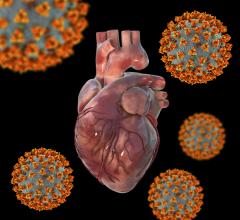
 March 20, 2024
March 20, 2024 

